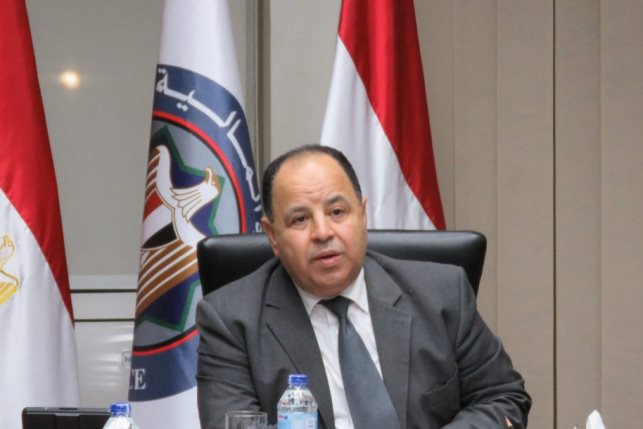Quick recovery and great service: Careem Egypt’s GM talks pandemic and tech
Careem Egypt’s General Manager Haitham Essam discusses how the MENA-born startup quickly recovered in a pandemic and gives us a look inside how Careem does things

Despite the abrupt drop in demand for ride-hailing and mobility services as travel and overall mobility became restricted due to the pandemic, the industry is looking to lick its wounds and make a comeback.
Talking with us on how Careem Egypt has been able to recover from the global crisis, Careem Egypt’s General Manager Haitham Essam discusses how the MENA-born startup quickly recovered in a pandemic and gives us a look inside how Careem does things.
At one point the pandemic was expected to deeply affect the ride-hailing and tech sectors particularly with lockdowns keeping people at home. In what ways have you seen the sectors being affected, and what actions has Careem Egypt taken for its business to survive the pandemic?
Covid-19 is one of those incidences that has impacted almost every aspect of people’s lives globally, [in regards to] the ride-hailing sector, it is unfortunately among the hardest hit sectors.
Careem’s business volume was impacted as result of the imposed curfew, which limited mobility and operation hours, as well as the precautionary measures that limited human-to-human contact through social distancing and ban of gatherings.
Throughout the first quarter of 2020, Careem suffered a huge blow with its business activities; plunging by 80% due to the lockdown.
We were able to rapidly rebound and reinstate 67% of operation rates afterwards, with Careem Egypt becoming one of the fastest recovering businesses in the MENA region. We rolled out a series of safety measures in response to COVID-19 for the safety and wellbeing of our customers.
As part of these diligent efforts, we have added new rating criteria, at the end of each trip, to evaluate captains' commitment to the precautionary measures, in addition we temporarily block the accounts of captains when we suspect symptoms of COVID-19 and compensate them with an average of 14 days of earnings.
We also put Careem’s sizable large fleet to use during the pandemic recession by introducing delivery services, as part of regional strategy to become a Super App, especially after deliveries started to flourish as people were locked at home.
Careem launched new services such as "Wassaly - Send Items" and "Eshtreely - Buy Items" to deliver customers' orders from door to door. We also expanded in [our] "Careem Express" Business to Business service, as companies can now use Careem's large fleet to for delivery services due to the significant rise of ecommerce which had a very positive impact on the growth of our Express service.
In terms of pricing, we also adopted a new pricing strategy, bringing together high quality services with competitive prices with expansion in our Go Awfar Fleet in 10 governorates.
Since Uber’s acquisition of Careem in 2019, how has the company been able to keep its own brand and sense of self in Egypt and as a MENA-born startup?
Since the acquisition, Uber has officially owned Careem through a USD 3.1 billion deal. Careem remained independent as a wholly-owned subsidiary by Uber.
This acquisition did not reflect on the operations. Uber and Careem have been working as standalone companies in terms of management, staff in accordance with the Egyptian’s regulations.
How do you see the mobility network developing in the future, and what role do you think tech apps have to play in regards to it?
Egypt has made great strides in improving mobility and transportation systems and digitizing the mobility network in line with Egypt’s Vision 2030.
The Egyptian government has exerted noticeable efforts in developing the transportation system by integrating intelligent transportation systems in operations through conversion, development, and maintenance of vehicles.
New transportation systems include electric trains, railways, the use of artificial intelligence to improve the road network, developing infrastructure. The government did not overlook the human element role in this as it established an institution to provide training for railway technicians’ for two years.
Do you find it challenging for businesses to offer affordable services with high-quality standards in Egypt? Based on your experience, what advice would you give to businesses in that regard?
Careem is constantly exploring market needs and trends to address existing gaps and offer fully digitized solutions with the lowest lag rates.
Technology does not believe in the impossible. There is always a way to do it.
We have noticed positive and promising results towards our new strategy in the market, and as a result, we succeeded in luring back a large number of customers who were reluctant to use our services during the pandemic. Our customer-centric, tailored approach put to use technological solutions and altered our service-providing scheme to become a safety-driven one.
Careem GO Awfar service is a success story that offered a new experience to our customers. It was challenging at first to provide a high-quality service that matches our standards yet is affordable.
While it was challenging, we balanced the tricky equation of growing the service, maintaining service levels, offering lower prices, and retaining car brands in Careem’s fleet.
This was backed by the great efforts of our team, which helped us expand to a fleet of 10,000vehicles operating in the Egyptian market.
Understandably, affordability means we will not be able to offer luxury services, yet we make sure that the cars are in very good condition and abide by all our service standards.
My advice to all types of business ventures, whether small startups or huge conglomerates is to work towards fully digitizing their services, as this approach was deemed effective both financially and economically.
During the COVID-19 pandemic, entities that were able to successfully digitize their services and office dynamics were able to prosper and keep their businesses going. An example of fully integrating technologies into your working habitats is providing work from home options, with all operations taking place through virtual meetings and online communications.
Since early 2020, Careem has been called a “Super App,” could you tell us a little bit about what that means and how Careem has become one of the first in the region?
Careem launched “Super App” in April 2020, with investments of around $50 Million.
To explain it in short, a Super App is a multi-vertical technology platform that offers multiple services under one application. Careem will provide multiple services alongside its core business of ride-hailing.
Careem began expanding its core business initially with food and delivery, and now we are offering services across three areas: Mobility of People, Mobility of Things, and Mobility of Money.
About 48 million users have registered for the Super App around the region. Careem aims to be the one stop shop for digital services.
Whether you need ride-hailing, delivery, or e-payments, Careem is creating a hub to fulfill customers’ needs through one single app.
Building upon that, let’s talk about the company’s overall platform strategy to invest in its employees and workforce
Employee satisfaction and wellbeing are one of Careem’s main priorities. We were able to cater to our workers’ safety and health by implementing remote and flexible working hours since the breakout of the pandemic.
Six months later, Careem built upon this new work model after proving to increase the overall productivity and work efficiency of our employees, and we expanded it to the entire organization permanently. The company also altered its hiatus policy to provide unlimited vacations for its employees.
However, that does not mean we have completely wiped out office work, as there are 36 offices still available all over the region for employees who still prefer working in an office environment. These offices are being designed in an innovative way to facilitate cooperation and increase the bond between employees.
Careem has also launched “Cloud Tech Hub” which aimed to recruit 60 engineers and [establish] cloud-based mini tech hubs in Egypt, Pakistan, and Lebanon. The launch of the cloud tech hubs is just the latest from a series of innovations that Careem is setting forth.
Already renowned as one of the most desirable workplaces in the region, all new recruits will get Careem’s unique value proposition, which includes unlimited holidays, great opportunities to professionally learn and grow as well as a community of inspiring colleagues, empowered to drive impact across the region.




